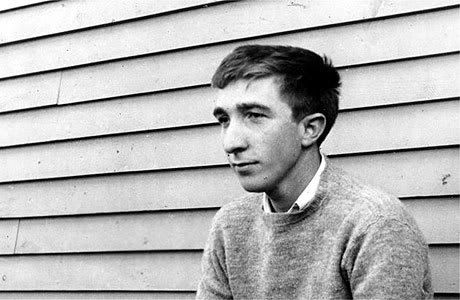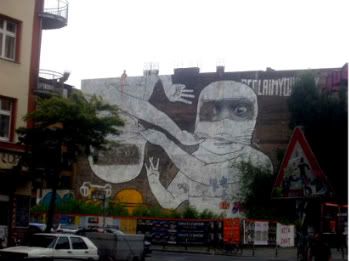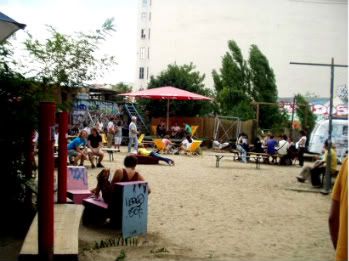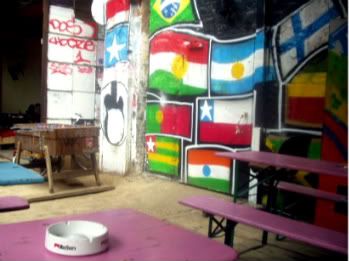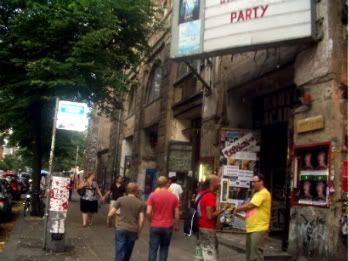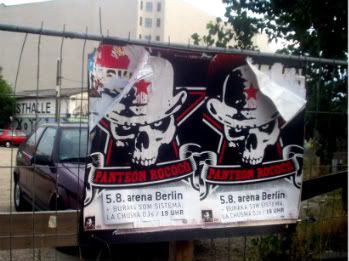quarta-feira, 7 de janeiro de 2009
A Scattered Homage to Guillermo Cabrera Infante (1929-2005)
(...)
5.
In the introductory pages to A Twentieth Century Job, the fictitious friend of the dead Cain writes:
Curioser and curioser, Cain always went to movies alone. For this he also had an explanation: ‘Women don't let you watch movies in peace,’ he explained. ‘It seems that the combination of the darkness, the music and the so soft seats predisposes them to something quite different from a critical judgement: to erotic prejudice.’ (5)
In spite of (or because of) this, the last pages of the 1979 novel La Habana para un Infante difunto (Infante’s Inferno) depict a fantastic voyage beginning in the body of a woman and ending in the clear light of a cinema projector. (6) The character, more or less the author himself, goes to a well-known Havana cinema with a premonitory name: Fausto. There, in the lobby, he perceives a gesture of invitation in a woman’s face. Immediately he buys a ticket and enters the theatre in pursuit of this woman, who is sitting in the middle of a group of empty seats. Sitting means waiting: the woman is, the whole time, paying attention to the action on the screen (a Pluto cartoon) as he begins putting a hand on one of her knees, then one of her breasts, until she finally opens her legs, where he touches her ‘intimate nakedness’. It is at this very moment that magic begins, because he loses his wedding ring ... inside her.
I know that I am spoiling one of the most beautiful passages ever written in the Spanish language, but I need to tell this story to finally return to cinema via another route. She gives him permission and the incredible quest for the ring begins, but then ... he loses his wristwatch in the same place/hole and, then, then the cuff links from his shirt. As all efforts to find these objects end in failure (there is so little light in a movie theatre), she gives him a flashlight and opens her legs as wide as she can. Not only to facilitate the search, but to give him the possibility of entering her body. Inside, he does not find the ring, watch or cuff links, but a book with Latin words on the cover: ‘Ovarium, corpus luteus, labium majus, matrix, tubae Falloppi.’ The next phase is the loss of the book and the exit from the labyrinth in a grand parody of Jules Verne’s famous novel, Journey to the Centre of the Earth. The only thing which the character never leaves behind is the light: the phallic light of the cinema projector.
This journey into the body of woman is a strange rite of passage in which the hero loses time (the watch), social bonds (the wedding ring), and the correct dressing (the cuff links) that symbolises his civilised condition. The woman with open legs, hieratic and tempting at the same time, with enormous internal organs, wet and dark, is a sort of absolute Nature – at least, if we consider the loss of time, social bonds and civilised condition experienced by the character. From this point of view, the words printed in the cover of the book (and the loss of the book when the character is finding the exit of the labyrinth) are not only logical, but the only words one could find there, as we are now in the empire of origins. Matrix is source, rising, birth. The novel starts with an adolescent character, an emigrant from a provincial town in the big city, the capital of the country, trying to find his way in life in a double direction: erotic and professional. At the end we have travelled, with him, the road to maturity and cinema (both of them signifying creation) in a single movement of reading.
© Victor Fowler Calzada and Rouge 2005.
5.
In the introductory pages to A Twentieth Century Job, the fictitious friend of the dead Cain writes:
Curioser and curioser, Cain always went to movies alone. For this he also had an explanation: ‘Women don't let you watch movies in peace,’ he explained. ‘It seems that the combination of the darkness, the music and the so soft seats predisposes them to something quite different from a critical judgement: to erotic prejudice.’ (5)
In spite of (or because of) this, the last pages of the 1979 novel La Habana para un Infante difunto (Infante’s Inferno) depict a fantastic voyage beginning in the body of a woman and ending in the clear light of a cinema projector. (6) The character, more or less the author himself, goes to a well-known Havana cinema with a premonitory name: Fausto. There, in the lobby, he perceives a gesture of invitation in a woman’s face. Immediately he buys a ticket and enters the theatre in pursuit of this woman, who is sitting in the middle of a group of empty seats. Sitting means waiting: the woman is, the whole time, paying attention to the action on the screen (a Pluto cartoon) as he begins putting a hand on one of her knees, then one of her breasts, until she finally opens her legs, where he touches her ‘intimate nakedness’. It is at this very moment that magic begins, because he loses his wedding ring ... inside her.
I know that I am spoiling one of the most beautiful passages ever written in the Spanish language, but I need to tell this story to finally return to cinema via another route. She gives him permission and the incredible quest for the ring begins, but then ... he loses his wristwatch in the same place/hole and, then, then the cuff links from his shirt. As all efforts to find these objects end in failure (there is so little light in a movie theatre), she gives him a flashlight and opens her legs as wide as she can. Not only to facilitate the search, but to give him the possibility of entering her body. Inside, he does not find the ring, watch or cuff links, but a book with Latin words on the cover: ‘Ovarium, corpus luteus, labium majus, matrix, tubae Falloppi.’ The next phase is the loss of the book and the exit from the labyrinth in a grand parody of Jules Verne’s famous novel, Journey to the Centre of the Earth. The only thing which the character never leaves behind is the light: the phallic light of the cinema projector.
This journey into the body of woman is a strange rite of passage in which the hero loses time (the watch), social bonds (the wedding ring), and the correct dressing (the cuff links) that symbolises his civilised condition. The woman with open legs, hieratic and tempting at the same time, with enormous internal organs, wet and dark, is a sort of absolute Nature – at least, if we consider the loss of time, social bonds and civilised condition experienced by the character. From this point of view, the words printed in the cover of the book (and the loss of the book when the character is finding the exit of the labyrinth) are not only logical, but the only words one could find there, as we are now in the empire of origins. Matrix is source, rising, birth. The novel starts with an adolescent character, an emigrant from a provincial town in the big city, the capital of the country, trying to find his way in life in a double direction: erotic and professional. At the end we have travelled, with him, the road to maturity and cinema (both of them signifying creation) in a single movement of reading.
© Victor Fowler Calzada and Rouge 2005.
VÍCIO DE MATAR
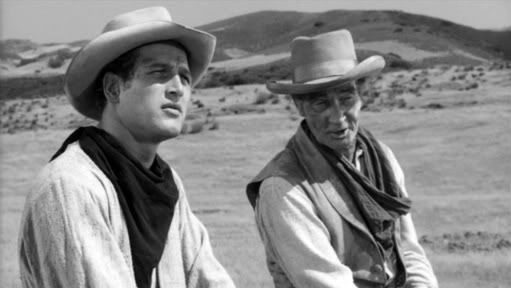
Para onde há-de ir billy the kid?
Billy não sabe para onde há-de ir
Persegue a morte na pessoa dos outros
quando era nele que ele a devia afinal perseguir
Mata inimigos e mata amigos
Viver é para ele matar
Procura um refúgio mas nunca sabe
onde se há-de refugiar
Sabeis qual o seu maior inimigo?
É ele o seu maior inimigo
Matam-lhe a gente de quem ele gosta
e ele gosta de coisas simples
como de ver ondular o trigo
E billy morre billy está salvo
É ver aquela mão abrir
Sobre si próprio concentrado
de tudo o mais alheado
billy já tem para onde fugir
O caminho da ida e o caminho da volta
não são afinal o mesmo caminho
Billy conhece agora o destino
Sempre inquieto sempre a correr
amou a vida como se amar fosse morrer
Sabe-lhe bem ser de novo menino
Billy the kid para onde há-de ir?
Não o sabia bastava um gesto
Mas billy que estava cansado e gasto
leva um tiro e então já sabe
para onde é que sempre quisera ir
Billy the kid nunca soubera o que era fugir
e a morte mãe o recebe
Billy que nunca soubera fugir
nem mesmo pergunta para onde há-de ir
(Ruy Belo, Todos os Poemas I, Assírio & Alvim, pág. 278)
* 'The Left Handed Gun', hoje, no sítio do costume.
The Pretender
Oldham served drinks and talked about a recent European tour, during which he smuggled psychedelic mushrooms across a border (he hid them in his underwear) and stole a hairpin from a flamenco singer (he hid it in his beard).
(...)
The concert hadn’t been Oldham’s idea; it had come from his friend Oscar Parsons, a singer and guitarist from western Virginia (on his MySpace page, he calls himself a “skinny ass billhilly”), who first befriended Oldham by offering him some homemade blueberry moonshine. Parsons wanted to know how much Oldham charged for a concert. Oldham said, “Fuck, anywhere from zero to twenty-five thousand dollars. It depends who asks.”
(...)
He looked none the worse for wear-the next afternoon, sitting in his kitchen. Remembering his disappearance the previous night, Oldham said, “I figured I should sleep for, like, an hour and a half. For legal reasons.”
(...)
In March, he plans to release “the big record,” a deeply satisfying album called “Beware,” which conjures a mood of resolution, maybe even finality. (In the stately country song “I Don’t Belong to Anyone,” he amplifies the title of his 1993 début album: “I don’t belong to anyone, there’s no one who’ll take care of me / It’s kind of easy to have some fun when you don’t belong to anyone.”) He intends to promote the album with singles, a photo shoot, and a handful of interviews, if only to prove that record promotion doesn’t really work, at least not for him.
(...)
“Sometimes,” he says, “we need to tell ourselves that we’re not going to do certain things, just in order to stay sane.”
(...)
He proffered a copy, with an inscription inside: “K. GOOD LUCK. BPB.” But it was clear that he wasn’t feeling entirely optimistic about having agreed to a magazine profile. “My mother’s a huge fan, and I really liked that Merle piece, but definitely there’s already . . .” He trailed off. “I don’t know. I really hate press. And it’s . . . yeah.” ♦
(daqui, via Vidro Duplo.)
(...)
The concert hadn’t been Oldham’s idea; it had come from his friend Oscar Parsons, a singer and guitarist from western Virginia (on his MySpace page, he calls himself a “skinny ass billhilly”), who first befriended Oldham by offering him some homemade blueberry moonshine. Parsons wanted to know how much Oldham charged for a concert. Oldham said, “Fuck, anywhere from zero to twenty-five thousand dollars. It depends who asks.”
(...)
He looked none the worse for wear-the next afternoon, sitting in his kitchen. Remembering his disappearance the previous night, Oldham said, “I figured I should sleep for, like, an hour and a half. For legal reasons.”
(...)
In March, he plans to release “the big record,” a deeply satisfying album called “Beware,” which conjures a mood of resolution, maybe even finality. (In the stately country song “I Don’t Belong to Anyone,” he amplifies the title of his 1993 début album: “I don’t belong to anyone, there’s no one who’ll take care of me / It’s kind of easy to have some fun when you don’t belong to anyone.”) He intends to promote the album with singles, a photo shoot, and a handful of interviews, if only to prove that record promotion doesn’t really work, at least not for him.
(...)
“Sometimes,” he says, “we need to tell ourselves that we’re not going to do certain things, just in order to stay sane.”
(...)
He proffered a copy, with an inscription inside: “K. GOOD LUCK. BPB.” But it was clear that he wasn’t feeling entirely optimistic about having agreed to a magazine profile. “My mother’s a huge fan, and I really liked that Merle piece, but definitely there’s already . . .” He trailed off. “I don’t know. I really hate press. And it’s . . . yeah.” ♦
(daqui, via Vidro Duplo.)
natal de 2009
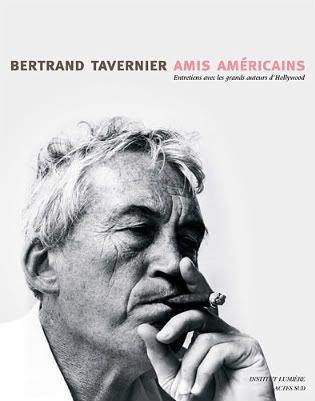
Este dia podia saltar do calendário. Ando com uma ressaca de uma semana, incapaz de me concentrar no que quer que seja, com um discurso desprovido de sintaxe; sinto-me cansado até aos ossos e à medula. Bebo café instantâneo e tenho apitos nos ouvidos. Tenham pena de mim que sou inepto em demasia em tanta tanta coisa. Hoje não fiz nada de nada a não ser ler uns textos em atraso. Queria, por exemplo, transcrever na íntegra o texto da Alexandra Lucas Coelho no Público de segunda-feira, dia 05 (está por aqui um excerto). O livro do Bertrand Tavernier (996 páginas, li algures) custa mais de 65 euros na Amazon francesa. (Mas dá uma rica prenda de Natal para 2009.)
sexta-feira, 2 de janeiro de 2009
a canção mais triste do mundo
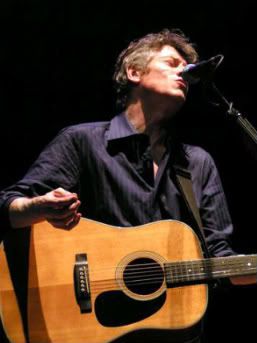
From a late night train
Reflected in the water
When all the rainy pavement
Lead to you
It's over now
I know it's over
But I can't let go
The cigarettes, the magazines
All stacked up in the rain
There doesn't seem to be a funny side
It's over now
I know it's over
But I can't let go
From a late night train
The little towns go rolling by
And people in the station
Going home
It's over now
I know it's over
But I love you so
(The Blue Nile, 'From a Late Night Train')
2009, intentos
*ler na totalidade 'A Guerra pela Civilização', do Robert Fisk (oferta do meu velho pelo Natal) - ser, em geral, mais metódico na leitura;
*outros dois que calham bem: 'A Guerra em debate' (Michael Walzer) e 'Israel e o Islão - As Centelhas de Deus' (Pietro Citati);
*ser melhor companhia para três ou quatro pessoas;
*os contos do Breece D'J Pancake;
*William Gaddis;
*a poesia do Ruy Belo;
*esquecer de vez a Leica M8, uma ideia tonta;
*mais Renoir, mais Rossellini;
*passear-me num destes sítios: Buenos Aires e um outro local argentino; Budapeste; Copenhaga; ou visitar o amigo Carlos em Pavia (o sítio mais provável deles todos);
*atinar profissionalmente (igual a ser menos canhestro);
*correr de quando em vez (quando me sentir mesmo mesmo mesmo péssimo, enjaulado);
*'Sátántangó', Tarr;
*'Pasazerka', Munk;
*'The Films of Budd Boetticher';
*aprender uma língua nova;
*'Spione', Lang;
*'The Wire': quarta e quinta temporadas;
*'The New World - The Extended Cut', Malick;
*uns Globe Escobar;
*não ser cabrão com ninguém: acabei por sê-lo, por negligência ou estupidez, em 2008.
*outros dois que calham bem: 'A Guerra em debate' (Michael Walzer) e 'Israel e o Islão - As Centelhas de Deus' (Pietro Citati);
*ser melhor companhia para três ou quatro pessoas;
*os contos do Breece D'J Pancake;
*William Gaddis;
*a poesia do Ruy Belo;
*esquecer de vez a Leica M8, uma ideia tonta;
*mais Renoir, mais Rossellini;
*passear-me num destes sítios: Buenos Aires e um outro local argentino; Budapeste; Copenhaga; ou visitar o amigo Carlos em Pavia (o sítio mais provável deles todos);
*atinar profissionalmente (igual a ser menos canhestro);
*correr de quando em vez (quando me sentir mesmo mesmo mesmo péssimo, enjaulado);
*'Sátántangó', Tarr;
*'Pasazerka', Munk;
*'The Films of Budd Boetticher';
*aprender uma língua nova;
*'Spione', Lang;
*'The Wire': quarta e quinta temporadas;
*'The New World - The Extended Cut', Malick;
*uns Globe Escobar;
*não ser cabrão com ninguém: acabei por sê-lo, por negligência ou estupidez, em 2008.
Cabul
...fotos por aqui, de Miguel Lopes, fotojornalista da Lusa.
Mais fotos:
*as dez melhores do ano da 'Time'.
*as dez melhores das eleições norte-americanas. (a minha favorita.)
Mais fotos:
*as dez melhores do ano da 'Time'.
*as dez melhores das eleições norte-americanas. (a minha favorita.)
Jerome David
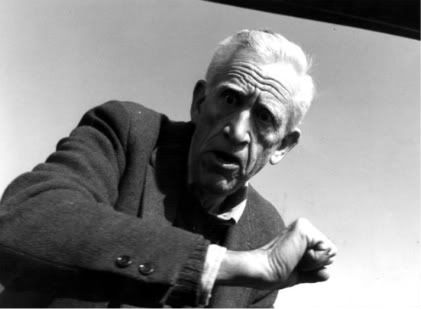
Noventa anos ontem. Gostava de lhe pagar uma copo em Cornish. (Mérito ao A montanha mágica e ao Complexidade e Contradição pela lembrança. Esta fotografia é encantadora; vou encontrar e ler o 'A Perfect Day for Banana-Fish'.)
2008, lembro-me disto (rascunho indecoroso)
Gin Hendricks, evidente, ainda não foi desta que aprendi a gostar de whisky. Pachorra para escrever a apoucar. Uma semana isolado no Alentejo na casinhola fria e mofenta dos meus avós - deu para ler e ler mais. Acidente de carro (faço da distracção ofício). Um primo da minha mãe, o primo Zé, alentejano monossilábico; gente boa numa família à beirinha do colapso. Desiludir amigos (dois, talvez três - lamento um de verdade - fui manhoso, portei-me mal). A saúde do meu velho a deteriorar; eu mais distante dele sem explicação decente. Sebastião Alba e António Gancho. A lei do limpa-pára-brisas no filme do Garrel (pai): como quem diz: K e V (por que é que duas pessoas jovens têm de ser tão estupidamente orgulhosas?, e quando foi que comecei a precisar mais dela do que ela de mim?) Darjeeling e Hotel Chevalier e tenho em Wes Anderson um irmão mais velho (e em Salinger nosso pai (ausente)). A vaca congelada no rio no filme do Skolimowski; a neve e a roupa branca no estendal. Duas cenas no filme do Gray (a inicial e a perseguição à chuva). Mélanie Laurent e Diane Fleri, as duas mais belas do ano no cinema. Usain Bolt: 9.69 nos 100 e 19.30 nos 200 metros. Messi (o melhor do mundo de momento). O amigo Yates (os três dele a que deitei mão); as capas da Vintage, todas elas, dos seus livros. 'Hats', dos The Blue Nile. Palavras mais usadas: 'charolastra' - raptada a um filme que muito gosto -, 'pateta' e 'transumância' - roubada a um colega. Diogo Rosado e o pé esquerdo mais displicente e altivo da última década a pisar Alvalade; um segredo mui apropriadamente guardado. Viagem de um mês: uma tarde amodorrado de ressaca em Podgorica; uma noite em Zadar (com princípios de porrada com um croata que me partiria a cara com murros descartado de preocupação - salvou-me o Artur; obrigado, devo-te essa); boleia de motoreta em Mostar; Berlim, a minha cidade modelo, demente q.b.. Uma Julia aloirada. Istambul que me desfez em suor sujo. Uma puta-guia-turística em Taksim e barba feita à navalha em Beyoglu (seria Beyoglu?, não garanto). Fotografias de Ara Guller; Goran Bregovic ao vivo em Budva; um dinamarquês tresloucado viciado em doces de viagem a Amesterdão. A 'The Black Angel's Death Son' e a 'European Son' dos Velvet. Boston Celtics (22 anos depois). Guardiola (saber e saber estar recompensados), Ibrahimovic e Guti. Os sentimentos mesquinhos e tolos que Ronaldo por cá suscita. Espanha campeã europeia com justeza. Ano de ida a poucos concertos; menos ainda ao teatro. Muita Cinemateca no primeiro semestre; quase nenhuma no segundo. Muito Ford, Lang, Preminger e mais algum Fuller; tornar a olhar com jeito para Cimino. No cinema morreram dois gigantes: Paul Newman e Richard Widmark. Desapareceu Pollack e um actor que cativava: Guillaume Depardieu; gente das letras: o belga Hugo Claus (esquecido em demasia), David Foster Wallace (de Federer a John McCain), Harold Pinter e Dinis Machado. Mais: Isaac Hayes, o Tim Russert da NBC, o Bobby Fischer e Iba N'Diaye (um pintor senegalês que desconhecia por inteiro e recordo por razões cá muito minhas e só minhas). Ray Ban falsos e Sanuk sandals. O meu reino por dois casacos. Descoberta de Jancsó e Iosseliani. Música de Mihály Vig nos filmes do amigo Tarr. Barack Obama: tipo do ano por maioria absoluta. Obsessão minha pelas eleições norte-americanas; a noite madrugada delas e um pequeno-almoço no Galeto com dois colegas. Livro do Joseph J. Ellis: Jefferson e a correspondência com Adams; o duelo Burr contra Hamilton. Rússia/Geórgia. Atrocidades na RD Congo. Atentados em Bombaim. Um ensaio do Pedro Rosa Mendes no Público, 'Timor-Leste: A ilha insustentável'. Captura de Karadzic, fuga sem fim de Mladic e leituras sobre Milosevic. O meu primo Rui, um homem agarotado. A minha tia Nita, com quem passei muito tempo em puto; está velha, não a reconheci por nada quando a revi aqui há um mês ou dois. As broas da minha tia Livita. Duas séries da HBO: Giamatti a fazer de John Adams (vi isto em modo viciado) e In Treatment. Jantares e póquer - jogo no qual sou espectacularmente mau - noite dentro na casa do Zé no Bairro. Vila Praia de Âncora. Morte da minha tartaruga Jakob (nome tirado a personagem central de um romance de Walser). O casamento do amigo Jota. Um, dois, três restaurantes em Campo de Ourique. O Júlio dos Caracóis em Chelas e a Casa do Alentejo. Terror e insónias. Rédea solta a pensamentos e atitudes imbecis. Idas escassas e fugazes a um lar de terceira idade. Colegas de trabalho (da gente impecável - os conselhos do Alex - aos pirados e aos idiotas chapados). Nespresso depois de almoço. Duvel ou Leffe (blonde ou brunne) à noite no sítio de sempre com o amigo de sempre, o melhor, Bruno. A ressaca amorosa de um amigo próximo. A miúda de um bar perto do King que não me liga puto. Sopa miso num sítio improvável por euro e meio. Zubrowka, vodka polaca, à venda no Pingo Doce, um insulto para o estômago por sete euros. Uns brincos que não cheguei a dar, por ali arrecadados. Sonhos de abóbora. Mestrado congelado. Julgo que 2008 não passou por mim à pressa: bem vistas as coisas, tive uns sete ou oito meses maus e o que sobrar bons. Um convite com interesse no final do ano que, inteligente como sou, passei por pavor de falhar. Gosto de desistir; contemplar a derrota sempre foi mais belo; cá lidarei com isso em 2009.
Subscrever:
Mensagens (Atom)
Arquivo do blogue
-
▼
2009
(93)
-
▼
janeiro
(15)
- They offered me a job, David. I think in those day...
- Sem título
- (...) The National contributed the song "So Far Ar...
- A Scattered Homage to Guillermo Cabrera Infante (1...
- VÍCIO DE MATAR
- The Pretender
- natal de 2009
- esquecidos
- a canção mais triste do mundo
- 2009, intentos
- Cabul
- 'What We Missed'
- Jerome David
- (Berlim, 2008)(fotos: Miguel B.)
- 2008, lembro-me disto (rascunho indecoroso)
-
▼
janeiro
(15)
blogues
- A Causa Foi Modificada
- a divina desordem
- A montanha mágica
- A Origem das Espécies
- agrafo
- Ainda não começámos a pensar
- Amarcord
- ana de amsterdam
- Animais Domésticos
- Anotacões de um Cinéfilo
- ARCO Argentina ter plaatse
- As Aranhas
- as invasões bárbaras
- Auto-retrato
- avatares de um desejo
- Bibliotecário de Babel
- Bomba Inteligente
- Caustic Cover Critic
- chanatas
- Ciberescritas
- Complexidade e Contradição
- Complicadíssima Teia
- Da Literatura
- dias felizes
- Disco Duro
- Duelo ao Sol
- e deus criou a mulher
- Esse Cavalheiro
- Estado Civil
- ex-Ivan Nunes
- gravidade intermédia
- Horitzons inesperats
- If Charlie Parker Was a Gunslinger, There'd Be a Whole Lot of Dead Copycats
- Intriga Internacional
- irmaolucia
- Joel Neto
- jugular
- Já Chovem Sapos
- lado “b” da minha mente
- Lei Seca
- Life and Opinions of Offely, Gentleman
- Léxico Familiar
- Margens de erro
- Menina Limão
- Mise en Abyme
- O Acossado
- O Anjo Exterminador
- O ente lectual
- O Falso Culpado
- O Inventor
- O Mundo pelos meus Olhos
- O Novo Selvagem
- o signo do dragão
- Ouriquense
- Pastoral Portuguesa
- Phantom Limb
- Poesia & Lda.
- Provas de Contacto
- Quetzal
- Ricardo Gross
- roda livre
- Sete Sombras
- Shakira Kurosawa
- sinusite crónica
- sound + vision
- State Of Art
- terapia metafísica
- the art of memory
- The Heart Is A Lonely Hunter
- umblogsobrekleist
- vida breve
- vidro duplo
- vontade indómita
- Voz do Deserto
«I always contradict myself»
Richard Burton em Bitter Victory, de Nicholas Ray.
